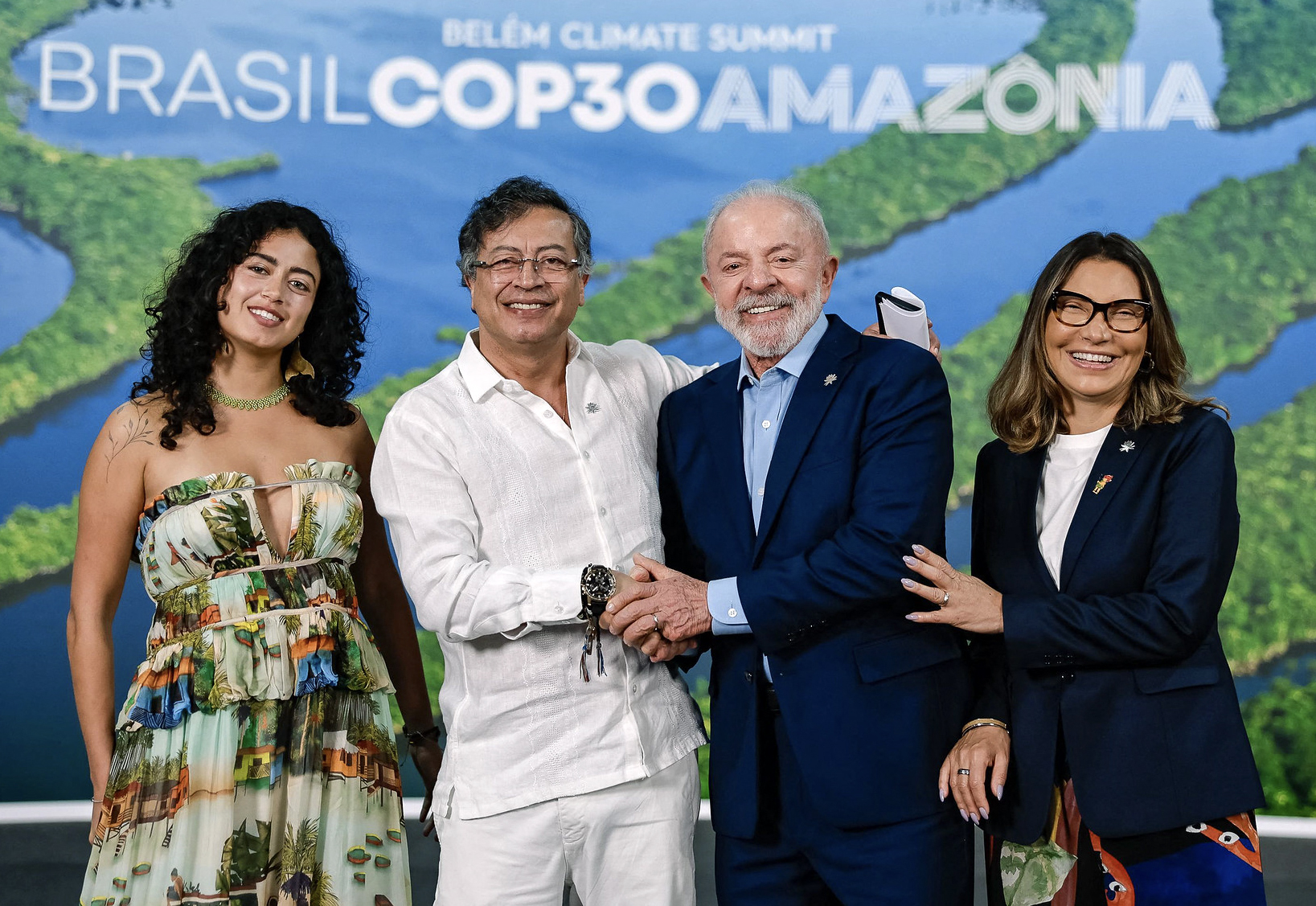To avoid the abyss, the Belém summit calls for not abandoning the fight for the climate

World leaders on Thursday called for continued efforts to combat climate change in order to maintain hope of saving the planet and condemned Donald Trump's climate change denialism at a summit ahead of the UN's COP30 in the Amazonian city of Belém.
Only about thirty heads of state and government responded to Brazilian President Luiz Inácio Lula da Silva's invitation to visit this river city ahead of the COP climate conference (November 10-21).
The two-day meeting opened shortly after the UN reported that 2025 is shaping up to be one of the warmest years on record, capping more than a decade of record-breaking high temperatures.
"We have failed" to meet the goal of limiting global warming to 1.5°C above pre-industrial levels, UN Secretary-General António Guterres said in Belém. But "we have never been better equipped to fight back," with tools such as renewable energy, he added.
Host Lula also issued a call to action. "The window of opportunity" to save the planet "is closing rapidly," he warned in his opening speech. He also denounced the lies of "extremist forces" that promote "environmental degradation."
Colombian Gustavo Petro was more explicit: "Donald Trump has a personal history of denying science" and is leading humanity "to the abyss." Similarly, Chilean Gabriel Boric stated that the US president maintains that "the climate crisis doesn't exist, and that's a lie."

Lula da Silva and the First Lady, Rosângela da Silva, welcome Gustavo Petro and his daughter Sofía. Photo: Photo provided by the Presidency of Brazil
Without mentioning Trump, French President Emmanuel Macron called for choosing "science over ideology." One hundred and seventy countries are participating in COP30, but the United States, the world's second-largest polluter after China, will not send a delegation. Trump has ignored the conference. The United States' second withdrawal from the Paris Agreement adds to a tense international environment marked by trade wars and conflicts. Most G20 leaders, including those from China and India, are also not attending.
Amazonian ritual "Nothing begins in the Amazon without a ritual," Walter Kumaruara, a 29-year-old indigenous man from the region, told AFP during a ceremony of Amazonian peoples in front of the negotiation center.
“So many of our people’s faces are plastered all over the city, but we’re not part of this event,” he lamented. Some 870,000 Indigenous people live in the Brazilian Amazon, and their traditions are considered key to preserving the world’s largest rainforest. For the Brazilian presidency, the goal of COP30 is to salvage international cooperation ten years after the Paris Agreement.
Brazil isn't seeking major decisions in Belém: it wants COP30 to establish concrete commitments and implement follow-up on past promises, for example, regarding the development of renewable energy. Lula launched a fund dedicated to the protection of tropical forests (TFFF) this Thursday. Norway indicated it wants to invest $3 billion, while Brazil announced a contribution of $1 billion and France, $575 million.
'It's not charity' Much of the developing world remains dissatisfied with last year's Baku climate finance agreement and wants to bring the issue back to the table. "This isn't about charity, it's about necessity," Evans Njewa, a diplomat from Malawi who chairs the group of least developed countries, told AFP.
"Many of our countries will not be able to adapt to warming exceeding 2°C," Ilana Seid, a diplomat from the Pacific archipelago of Palau and president of the Association of Small Island States (AOSIS), told AFP. The leaders' meeting precedes COP30, which has posed a major logistical challenge for Belém, a poor city with limited hotel capacity. Choosing this city drove up prices and complicated the arrival of small delegations and NGOs. Nevertheless, the authorities took the opportunity to give the city of nearly 1.4 million inhabitants a facelift, half of whom live in favelas.
"With the work that was done, Belém has improved a lot: it will leave a great legacy for us, the city is much more beautiful," says Rosiane Brito, a 40-year-old administrative employee. Some 10,000 law enforcement officers were mobilized, as well as 7,500 military personnel.
eltiempo




